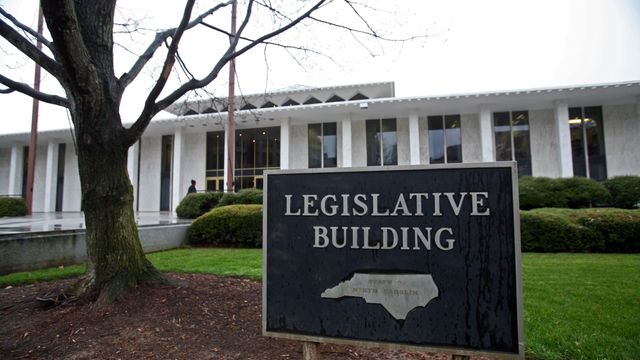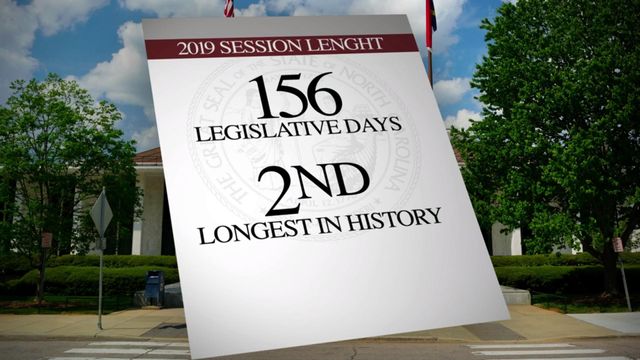Limits could rein in runaway legislative sessions
As the dust settles on the second-longest legislation session in North Carolina history, some say it's time for the state to consider session limits.
Posted — UpdatedNorth Carolina is one of just 11 states – the only one in the South – with no limits on how long legislative sessions can last.
Georgia’s session is only 40 days long. Virginia allows 60 days in even years and 30 days in odd years. Tennessee has a 90-day session limit. Alabama's limit is just 30 days.
South Carolina’s sessions can go up to five months, but they have to finish work on the first Thursday of June.
North Carolina’s session this year ran 156 legislative days over 11 months.
"It saves money. It makes it more efficient," McLennan said Monday. "One of the first reasons states started limiting their sessions is to eliminate frivolous bills that don’t produce laws, so they’ve made it very efficient, and they also allow for a citizen legislature."
North Carolina has a "citizen," or part-time, legislature, at least on paper. The pay is correspondingly low: most lawmakers receive an annual salary of $13,951, plus $104 per day for meals and lodging. For 2019, that added up to $30,175 for nearly a full year's work in Raleigh.
Many lawmakers have to pay for a second residence in Raleigh, McLennan added, as well as trying to maintain a job back home on just a day or two week.
"It’s the worst of all worlds," he observed. "Unless you’re retired or wealthy or both, it’s very difficult to be a legislator in North Carolina."
Other states can use special sessions, grant themselves extensions and find other ways to come back into session when needed. But most limit how long and how often they can reconvene. Some states have different ways to keep sessions short, like setting a date after which lawmakers can no longer collect per-diem expense checks.
For the past two sessions, a bipartisan group of senators has filed bills that would limit odd-year sessions to 135 calendar days and even-year sessions to 60 days. It's never even gotten a committee hearing.
McLennan isn't surprised at the lack of traction.
"The disadvantage is that it gives the executive branch more power and authority because they are there full time to deal with whatever may come up," he said. "But I think, if they thought about their own schedules and being efficient, I can see a lot of them wanting to do it."
Related Topics
• Credits
Copyright 2024 by Capitol Broadcasting Company. All rights reserved. This material may not be published, broadcast, rewritten or redistributed.






